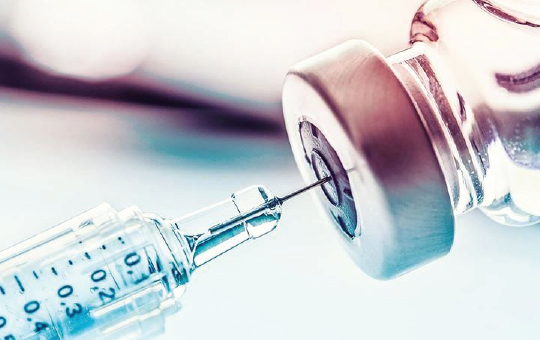The University of the West Indies (The UWI) is encouraging a responsible, positive and open-minded approach towards the COVID-19 vaccine.
The message was brought forward at a Vice-Chancellor’s Forum aimed at exploring developments in the battle against the COVID-19 pandemic, with particular focus on the new vaccines. The virtual event was hosted recently and was led by The UWI COVID-19 Task Force.
The forum was moderated by Caleb Gardiner, guild president of The UWI Five Islands Campus and member of The UWI COVID-19 Task Force.
Dr Luz Longsworth, pro vice-chancellor of Global Affairs and principal of The UWI Open Campus delivered welcome remarks on behalf of Vice-Chancellor, Professor Sir Hilary Beckles.
“As we now approach the end of 2020, The UWI presents the first in what will be a series of conversations on vaccinations now developed and those being developed for COVID-19,” she said. “This has been an unprecedented rapid vaccine development, probably the fastest in history. The UWI is pleased to provide this platform and space to engage with Caribbean experts, to discuss and explore some of the issues of concern around the vaccination, such as safety and effectiveness, what they do to your body and of course, the ethical issue around access. Given the nature of this pandemic, there are many myths and misinformation. As a university of excellence, it is our role to provide this means of engagement with our renowned researchers, scientists and practitioners such as our panellists and to explore what this new phase of COVID-19 means for us in the Caribbean.”
Immunologist and Chair of The UWI COVID-19 Task Force, Professor Clive Landis spoke to the effectiveness of modern vaccines in eradicating smallpox and drastically reducing childhood diseases such as measles and polio through sustained vaccination programmes worldwide.
He warned against the loss of confidence in vaccines due to misinformation spread by the modern “anti-vax” movement, which has resulted in an unnecessary and dangerous upsurge in the infection rates of avoidable diseases.
Professor Landis allayed concerns about the speed with which the vaccine had been produced. He explained that since 2005 scientists have been working to develop a vaccine against SARS which is a member of the coronavirus family, and therefore the process of adapting this work to the sequence of COVID-19 was straightforward.
Another member of the Task Force, Professor of Molecular Genetics and Virology at The UWI St Augustine Campus, Professor Christine Carrington stressed that the risk of a severe negative reaction from a vaccine is miniscule compared to the severity of symptoms of the disease itself.
There may be minor side effects such as pain, redness and swelling at the injection site, mild fever, chills, or muscle or joint pain, she said.
“The majority of these side effects are actually signs that the immune system is working and developing a protective response. Serious allergic reactions are very rare. So, getting vaccinated is safer than getting the disease.”
Professor Carrington noted that all the COVID-19 vaccines that are now approved—Pfizer BioNTech (BNT162b2), Moderna (mRNA-1273) and Oxford AstraZeneca (ChAd0x1 nCoV-19)—have shown to be remarkably effective. She highlighted that there are also several Chinese vaccines and one Russian vaccine in use.
During her presentation, Head of The UWI Five Islands School of Nursing, Karen Josiah refuted common myths and perceptions surrounding vaccines and debunked beliefs that vaccines contain harmful substances or even microchips. She stressed the safety and strict ethical and clinical conditions under which the vaccines were developed and approved.
While compassionately understanding the fears and doubts among members of the public, she encouraged health care workers to help instil public confidence through their conduct and communication with all stakeholders.
“Once trust is built,” she explained, “compliance is easy.”
Chair of the PAHO Regional Immunisation Technical Advisory Group, Professor Peter Figueroa explained the measures being taken globally to ensure equity of access to safe, high-quality, effective and affordable diagnostics, therapeutics and vaccines.
He cited the COVAX Facility, an international initiative aimed at ensuring rapid, widespread and equitable distribution of COVID-19 vaccines, particularly to the world’s most vulnerable populations.




